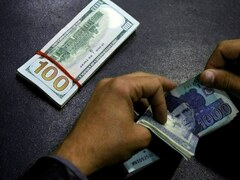‘Country’s tax system is a significant obstacle to economic development’
KARACHI: The Chairman of the National Business Group Pakistan, President of the Pakistan Businessmen and Intellectuals Forum, President of the All Karachi Industrial Alliance, Chairman of the FPCCI Advisory Board, Mian Zahid Hussain, said that Pakistan’s tax system is a significant obstacle to investment and economic development.
He expressed serious concerns regarding the inefficiencies and inequities within the country’s taxation framework, as it discourages business expansion, increases the financial burden on documented taxpayers, and fails to incorporate many crucial sectors and wealthy individuals into the tax net.
Mian Zahid Hussain said that a fundamental flaw in our tax system is its inability to ensure fair tax collection across all economic sectors.
He said that the documented businesses and salaried individuals face excessive taxation, and many wealthy individuals and key sectors remain outside the tax net.
He noted that instead of broadening the tax base, the government repeatedly targets existing taxpayers, which creates an atmosphere of distrust and reluctance to comply with tax obligations.
Consequently, he said, Pakistan’s tax-to-GDP ratio remains alarmingly low, significantly impacting the country’s financial stability and public welfare.
Mian Zahid Hussain highlighted that many businesses and individuals avoid entering the tax net due to tax authorities’ perceived inefficiency and high-handedness.
A lack of transparency and accountability in tax collection discourages people from formalising their businesses, thereby keeping a large portion of the economy undocumented.
He said this underground economy, which is significant in size, escapes taxation, causing the government to lose substantial revenue that could otherwise be used for developmental projects and public welfare initiatives.
The business leader said that Pakistan’s flawed tax policies have severe economic repercussions.
The government’s inability to generate sufficient tax revenue increases reliance on external loans and mini-budgets, further straining the economy.
Limited revenue restricts the government’s ability to invest in infrastructure, industrial growth, and employment generation, leading to stagnation in exports and slow economic progress.
He said that without adequate reforms, Pakistan will continue to struggle with financial instability and slow economic growth.
Mian Zahid Hussain has suggested that the government should priorities direct taxes over indirect taxes and expand its tax base by including sectors such as real estate, agriculture, wholesale, and retail businesses.
He said that one effective solution could be implementing a fixed tax system for retailers, which would simplify tax compliance and reduce tax evasion. Such measures would increase revenue and create a fairer taxation system, ensuring that every sector contributes to national development.
Another primary concern is the super tax, initially imposed to support individuals displaced by military operations. However, he stated that over time, this tax has expanded to include businesses and individuals earning over 150 million rupees.
Mian Zahid Hussain said that the continued imposition of super tax has placed additional financial burdens on businesses, hampering their growth, and he called for a reassessment of such taxation policies.
Copyright Business Recorder, 2025




















Comments